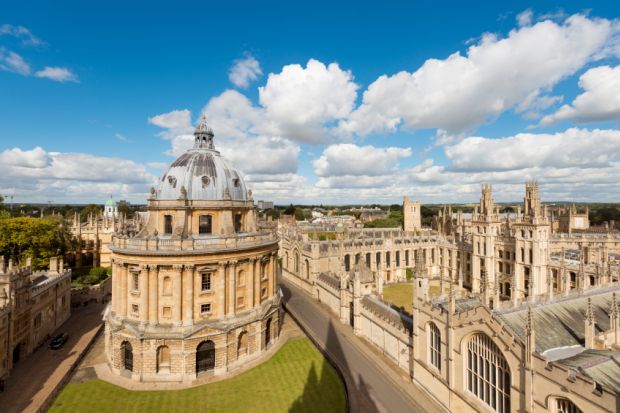All Souls is an academic monastery perched on Oxford’s high street whose great quad is the subject of 5 million (mostly Japanese) iPhone lenses every day. Not many visitors penetrate into the heart of the college, and there are no students. Once inside the Vatican City of the university, it all feels strangely redundant; a library with no one in it, quads silent save for the footsteps of the lackeys who scuttle around after the mysterious fellows – seen only at dinner time, I’m told.
And don’t ask too many questions; the library is available to all those with a Bodleian Reader card, the indentured librarian barked at me over pheasant pie in the staff quarters. “Anyone can use it!” she shrieked. Didn’t look like it to me. You are, of course, allowed to ask about William Abraham, the one and only black fellow of the college, who conveniently whitewashes – forgive the pun – any uncomfortable questions over how the library was funded (with Christopher Codrington’s plantation money, since you ask).
Out of curiosity, I recently had the dubious pleasure of transcribing the infamous annual fellowship examination; the hardest exam in the world, the Everest of exams. Or it was, until those All Souls softies decided to dumb down the general paper and generously provide those brave enough to enter into the gladiatorial arena more than one word to go on.
First up, the philosophy paper. Despite his brilliant first in philosophy, politics and economics, David Cameron refused to sit the fellowship exam, or so we are told. Maybe he just wasn’t asked?
That didn’t stop plenty of other would-be prime ministers from having a crack. With 38 questions to choose from, there’s something for everyone: for the logical, “Can a professor truly announce that she will give a surprise examination in one of the remaining six seminars of the term?”; for the ethical, “Does pornography cause or constitute silencing?”; and, for the purists, “What is paradoxical about Meno’s paradox?”.
I faithfully transcribed a great deal of answers to question 23: “Can murder ever be a right action?” and after a quick gallop through utilitarianism and virtue ethics, most decided against. One candidate dutifully waded through the arguments for and against euthanasia before hurriedly concluding that the whole thing was a great shame, but killing someone who’s about to keel over would be OK, sort of.
Paper two felt like more familiar territory: “Was Kant a compatibilist?” and “What are Aristotle’s three kinds of friendship?” Those with a mathematical bent (presumably men, but you never know) answered questions in a series of illegible fractions. Those who you felt would turn down the fellowship if offered and go straight to the bar answered concisely, with much underlining of affirmative statements. And those who were sitting the exam because, well, you should go to a party you’re invited to, took several pages to answer anything.
At last, the general paper. Hurrah! This was what I came to see. Two papers, three hours to do each one, and six questions to answer in total. Only eight candidates would make it to viva, and only two of those eight (on a good year) would make it to the 50-fellow grilling after that. And after that, who knows what they might do with the cherry pie over supper in the hall (hint, spit the stone out).
The questions ranged from “Defend tweeting” to “Does Google know us better than we do?”. Clearly, the fellows have penetrated past the lodge after all, even if this is accompanied by a certain amount of existential angst, as demonstrated by questions 16, “Are emotions irrational?” and 17, “Does it matter if we are alone in the universe?”.
So, who are these would-be fellows who can defend tweeting, wax lyrical on Google and still have enough gas in the tank to answer question 17 on the second paper, “Did the Enlightenment happen?”, or my personal favourite by Big W (Wittgenstein): “Music came to a full stop with Brahms”?
One just can’t tell. I can’t imagine John Redwood would have wanted to bother with the Google question, but who I am to say.
As the pile of papers to be transcribed dwindled, I began to think that the answers to the questions were incidental. For better or worse, the All Souls fellowship exam rumbles on every year with this year's prize fellows announced on 3 November. Those who bemoan the loss of the one-word paper and any kind of change to the most mystical of Oxford exams should consider that the fellowship exam is less about electing the year’s finest minds into the inner sanctum than a demonstration of the college’s might; the most pyrrhic contest of all. All Souls invites people to sit their exam as a show of strength because it can. There’s the genius right there.
Arabella Byrne holds a PhD in French from the University of Pennsylvania and master’s from the University of Oxford. She is writing a novel based on the war diaries of Jacques Rivière.
